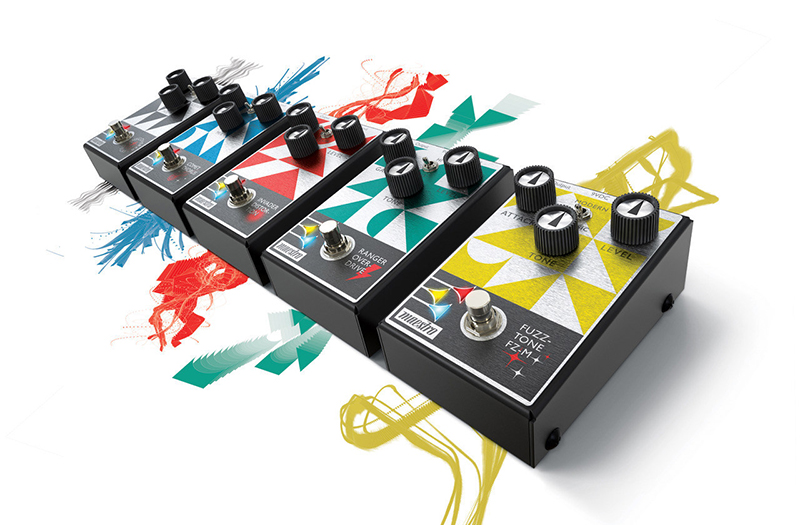
Following a global launch for Gibson Guitar’s newest acoustic collection, the strategic creative agency D/CAL in Detroit and Gibson Brands have relaunched Maestro, the brand that pioneered guitar effects almost four decades ago.
Most notably the brand gained recognition after The Rolling Stones used Maestro’s Fuzz-Tone pedal to achieve the signature sound on “(I can’t get no) Satisfaction” in 1962.
Meanwhile, Gibson Mandolin-Guitar Manufacturing Co. Ltd. got its start in Kalamazoo in 1902 (some say the founding came in 1894), where it designed, built, and distributed musical instruments around the world. In 1984, Gibson moved to Nashville.
“This reboot is kind of like the brand that came out of a coma 40 years later — same personality, same soul, but didn’t need to be caught up on anything,” says Mike Fox, brand manager of Maestro.
As part of brand’s relaunch, Maestro is offering a family of five pedals called The Original Collection. Each pedal offers a distinct, classic effect, including an homage to the original Fuzz-Tone. The full collection includes Ranger Overdrive, Invader Distortion, Discoverer Delay, and Comet Chorus.
“Few people outside of the guitar player community have heard of Maestro, but almost everyone on the planet has actually heard Maestro at some point,” says Adam Wilson, co-founder of D/CAL. “From The Beatles to Jimi Hendrix, from U2 to The Cult, this brand has allowed artists to shape their signature sound and the history of rock ‘n’ roll.”
The brand has an all-new look and feel, along with a new tagline and brand mnemonic developed by D/CAL.
Working with such brands as Jeep, Carhartt, and Miller High Life, D/CAL states it drew from its understanding of what it means to be an American heritage brand for the re-launch, but with a contemporary, culture-driven approach.
“When we first played around with these pedals we immediately wanted to know what the sound from these could actually look like,” says Ryan Maconochie, co-founder of D/CAL.
Through D/CAL’s process of engaging agency outsiders, they called upon Alex Braidwood, a sound artist and creative technologist from Iowa State University to develop an algorithm that allows each pedal to generate reactive artwork inspired by the graphics on each pedal.
“The pedal graphics and whatever a guitarist plays are the inputs. The output is unique artwork that’s different every time, but true to the behavior and unique tone of each pedal effect,” says Braidwood.
To marry products, original music, and pedal art seamlessly D/CAL tapped KeyShot Studios.
The pedal art became the centerpiece of a global, multi-media campaign to support the relaunch of Maestro, consisting of several social videos, digital ads, featured content on Gibson’s YouTube channel gibson.tv, a website experience, and print ads that will run in various endemic publications.
“This isn’t just a launch of a new product line. We had to bring this brand back to life, so we worked closely with D/CAL to ensure this brand felt like it never went away,” says Sterling Doak, marketing director of Gibson. “It’s not every day you get the chance to reboot a brand after a four-decade hiatus. Especially one that had such a defining impact on the culture at-large.”
Founded in 2018 by Tony Hawk and agency veterans Wilson and Maconochie, D/CAL is a strategic creative agency that specializes in contemporary brand development, speed-of-culture creation, and brand activations.
For more information, visit www.dcalagency.com.
To read more about the early days of Gibson Guitars, which was covered in a Closing Bell feature called “Six-String Slinger” in DBusiness magazine, visit here.





